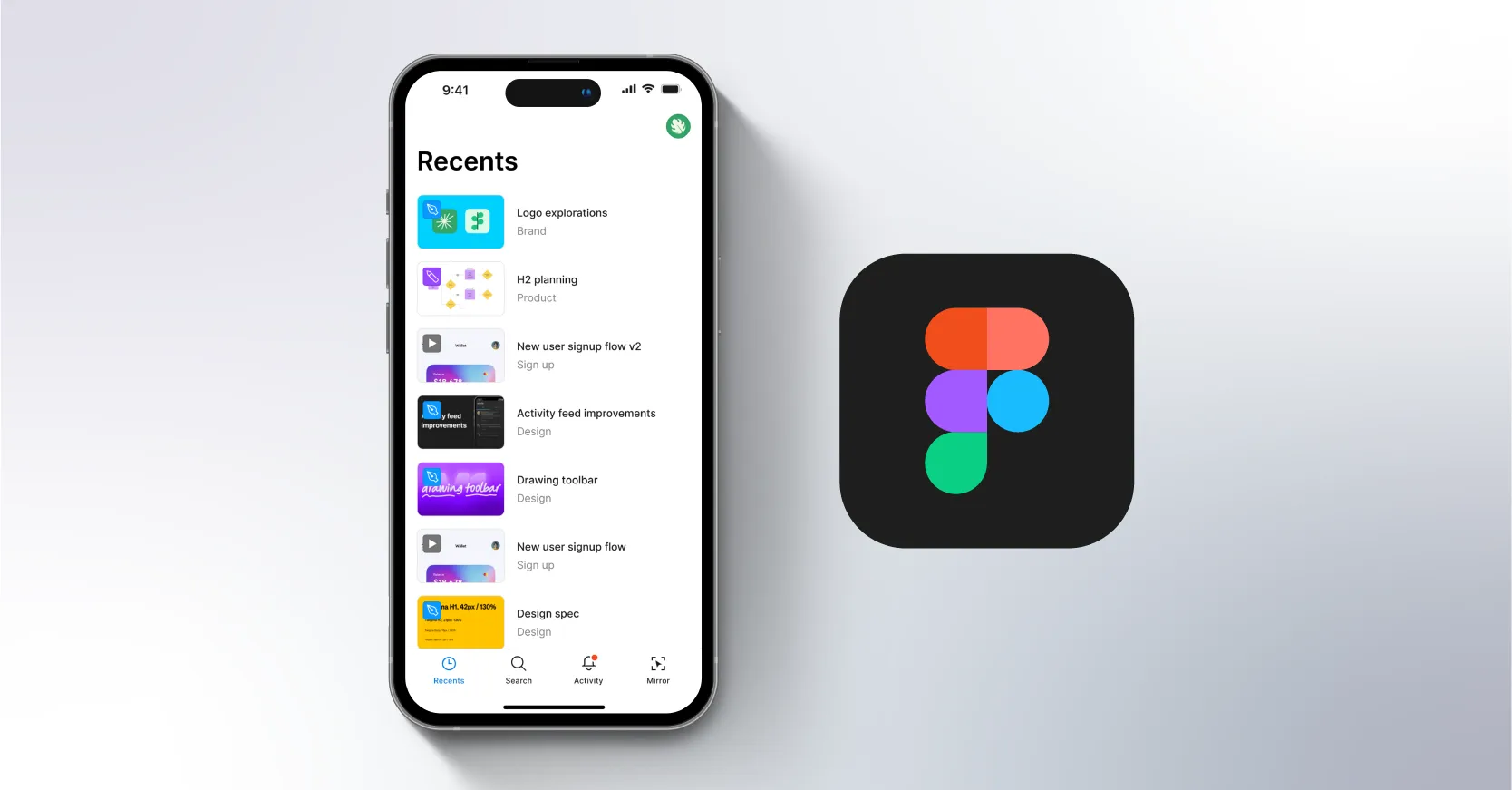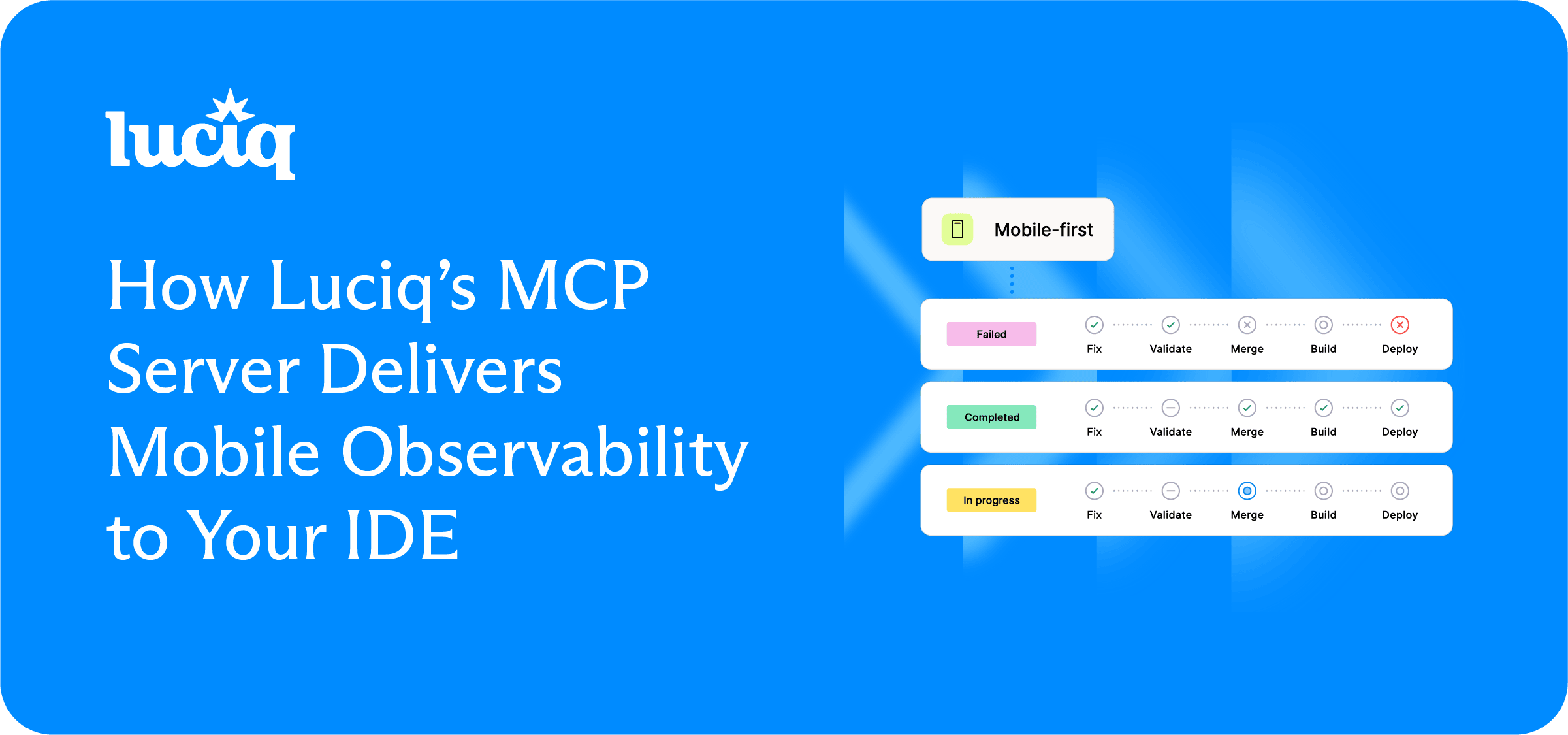You know that moment when a bug hits production and suddenly you’re juggling five tabs: crash logs, performance charts, user reports, and Slack threads, like a circus act? We’ve all been there. And honestly? It’s exhausting.
It’s not just you. With mobile apps now expected to hit 99.5% crash-free sessions, developers are spending countless hours maintaining stability instead of building the next big thing, and 65% of mobile developers report burnout from constant debugging and maintenance. Every time you alt‑tab to triage another issue, you pay a hidden tax: 20–30 minutes of lost focus in context switching. Multiply that across your team, and velocity tanks.
Enter MCP (Model Context Protocol): the open standard that lets IDEs talk directly to your tools.
What’s MCP and Why It Matters
MCP is an open standard that defines how AI-powered IDEs like Cursor, Claude Code, or GPT-native extensions connect to external tools. Instead of juggling APIs or SDKs, your IDE assistant can query structured tools in real time.
For developers, this means fewer interruptions and faster debugging. Dashboards still matter, they give the big picture and the source of truth, but day-to-day triage, bug-hunting, and release validation should happen where you actually work: the IDE.
That is why Luciq built a purpose-built MCP Server for mobile teams. It surfaces mobile-specific observability directly inside your IDE.
Why Mobile Teams Need a Purpose-Built MCP Server
Most MCP servers today are built with backend logs in mind. Mobile engineering plays by different rules:
- Crashes are not logs. They come with stack traces, device states, repro steps, and session context
- Performance bottlenecks look different. Think startup time, memory spikes, flaky networks
- Release health is not uptime. Mobile teams measure success with crash-free sessions, user retention, and app performance
Luciq’s MCP Server is built for these realities. It delivers:
- Mobile-specific metrics like ANRs, hangs, crash-free sessions, and network errors.
- Release-centric insights like version comparisons, adoption tracking, and regression spotting.
- Context directly in your IDE so you can debug without breaking your flow.
How MCP Brings Luciq’s Intelligence Into Your IDE
The MCP server isn’t a gimmick. It’s a technical bridge. It exposes Luciq’s platform as structured tools that assistants can call in real time. For example:
Need to see all critical bugs in the latest release? Use get_bugs to filter by status, priority, and tags. Want to know why that crash only happens on iOS 17 on iPhone 13? Call get_crashes with OS and device filters and get the stack trace back. You can even update bug statuses, add comments, or create new bug reports directly from your IDE. The server also lets you fetch user feedback, ratings, and usage analytics.
It’s not just observability; it’s in-IDE intelligence. No detours, no archaeology. Just context on demand.
Concrete Capabilities in Your IDE
When you run Luciq’s MCP Server, your IDE assistant gains real tools, not just shiny demos:
1. Fetch Mobile Crash and Bug Data
- Query crashes by OS, device, release, or severity
- Get stack traces, repro steps, and session context stitched together
2. Compare Releases in Real Time
- Track crash-free sessions, startup times, Apdex, and frustration scores
- Spot regressions before your users do
3. Take Action Without Leaving IDE
- Update bug statuses, assign owners, or file new reports
- Syncs automatically with Luciq dashboards so nothing gets lost
4. Propose and Validate Fixes
- Pair with SmartResolve to get patch suggestions, validate them in CI, and prep a PR faster than context switching back and forth
Real Debugging Workflows Already in Use
Luciq MCP Server is not just a concept. Mobile teams Luciq are already testing it out in their day-to-day:
- Crash triage: Ask “Show crashes on iOS 17” and your IDE replies “30% of iPhone 13 users are hitting this crash” with stack trace and repro steps attached
- Release comparison: “Compare startup time in 1.4.2 vs 1.4.3.” The IDE highlights a cold-start regression before rollout
- In-flow bug updates: Fix a bug, mark it resolved in IDE, and watch it sync instantly to Luciq dashboards
- AI-assisted fixes: SmartResolve proposes a patch, runs CI checks, and preps a PR, all inside your coding environment
Why This Matters: From MTTR to FTFR
- Cut context switching costs. Research shows it takes that long to regain focus after interruptions. Cut the dashboard-hopping, reclaim your time.
- Prioritize intelligently. A crash hitting 1.2% of iOS users post-deploy isn’t a low-priority bug. It’s a revenue leak.
- Boost First-Time Fix Rate (FTFR). MTTR is meaningless if most of the time is spent finding the problem. FTFR is solving it right the first time.
Setting Expectations: Context, Not Magic
Let’s be clear: Luciq MCP Server will not debug for you. It is not a silver bullet. Think of it as a context engine. It brings the right mobile insights into your IDE at the right time. You still need to fix your own code (or use SmartResolve to do it for you), but MCP makes it faster to know what broke, where, and why.
We also know MCP itself is evolving. There will be quirks. There will be edge cases. That is exactly why we are running this as a private beta. We want to build this with developers, not just for them. Your feedback will directly shape what this becomes.
The Future Is Conversational (and in Beta)
We are not killing dashboards. They remain the system of record. What MCP adds is conversational, IDE-native intelligence that keeps you in flow.
By joining the beta, you will get:
- Early access to IDE integrations like Cursor, Claude, and more
- A direct line to our product and engineering teams
- A chance to shape how mobile observability evolves for AI-native workflows
If you’re a Luciq customer, contact your CSM or support team to request beta access and be among the first to experience conversational, IDE-native intelligence for mobile observability.
FAQs
Q: Is this replacing dashboards?
A: Nope. Dashboards are still where you go for monitoring, strategy, and reporting. MCP is your in-IDE sidekick. Dashboards = big picture. MCP = in the trenches.
Q: Which IDEs are supported?
A: We are starting with AI-native IDEs and extensions like Cursor, Claude Code, and GPT integrations. If your IDE speaks MCP, we want to support it. Got a favorite? Tell us, and we will add it to the list.
Q: Can I actually take action, or is it just read-only?
A: You can already query crashes, compare releases, update bug statuses, and file new reports right from your IDE. All of it syncs back to Luciq dashboards, so nothing falls through the cracks.
Final Thoughts
Observability used to mean “logs, metrics, traces.” That worked yesterday. Today, developers need context where they code. Luciq’s MCP Server brings mobile-first insights into the IDE. Dashboards for visibility, IDE for velocity. It is context on demand, not debugging magic.
















